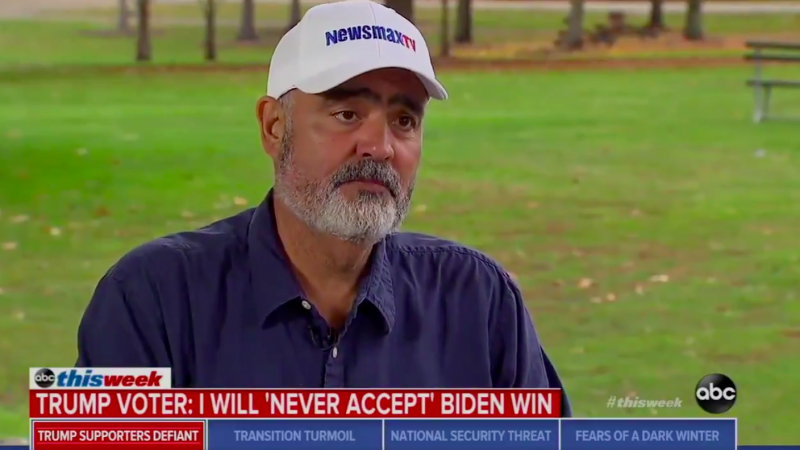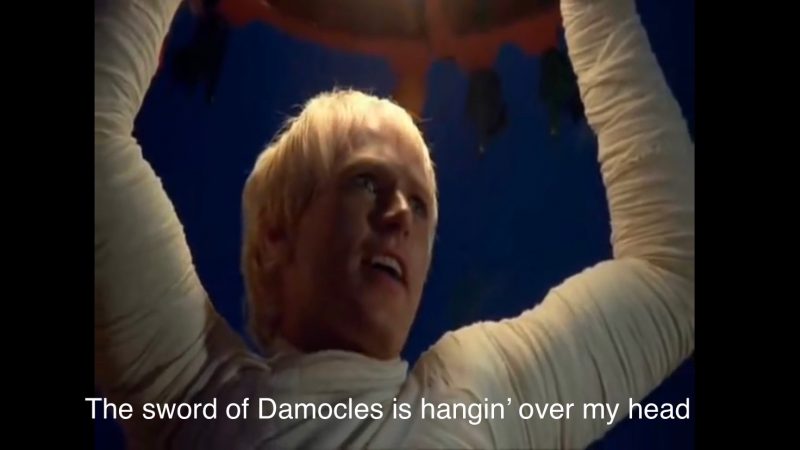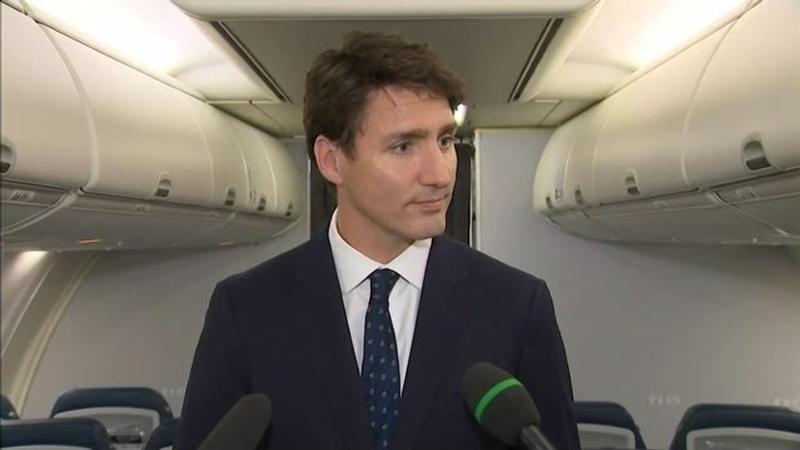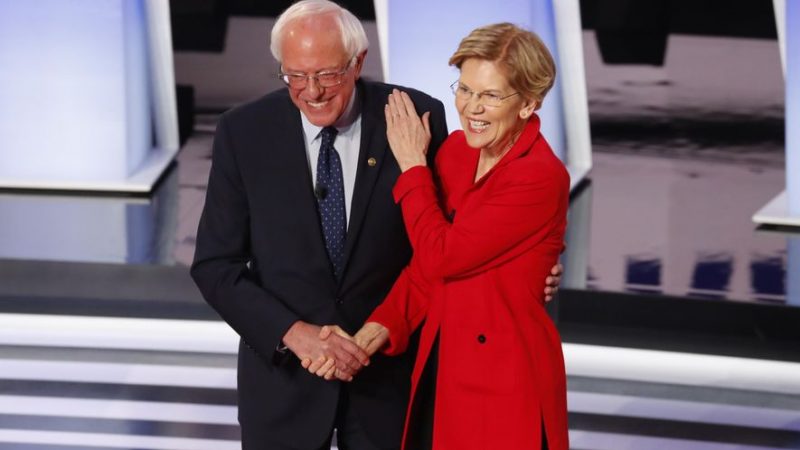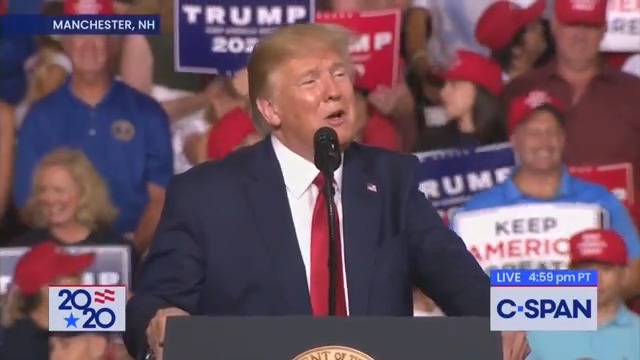Chuck Todd Is Lost: Why He’s Totally Wrong About The State Of The Press
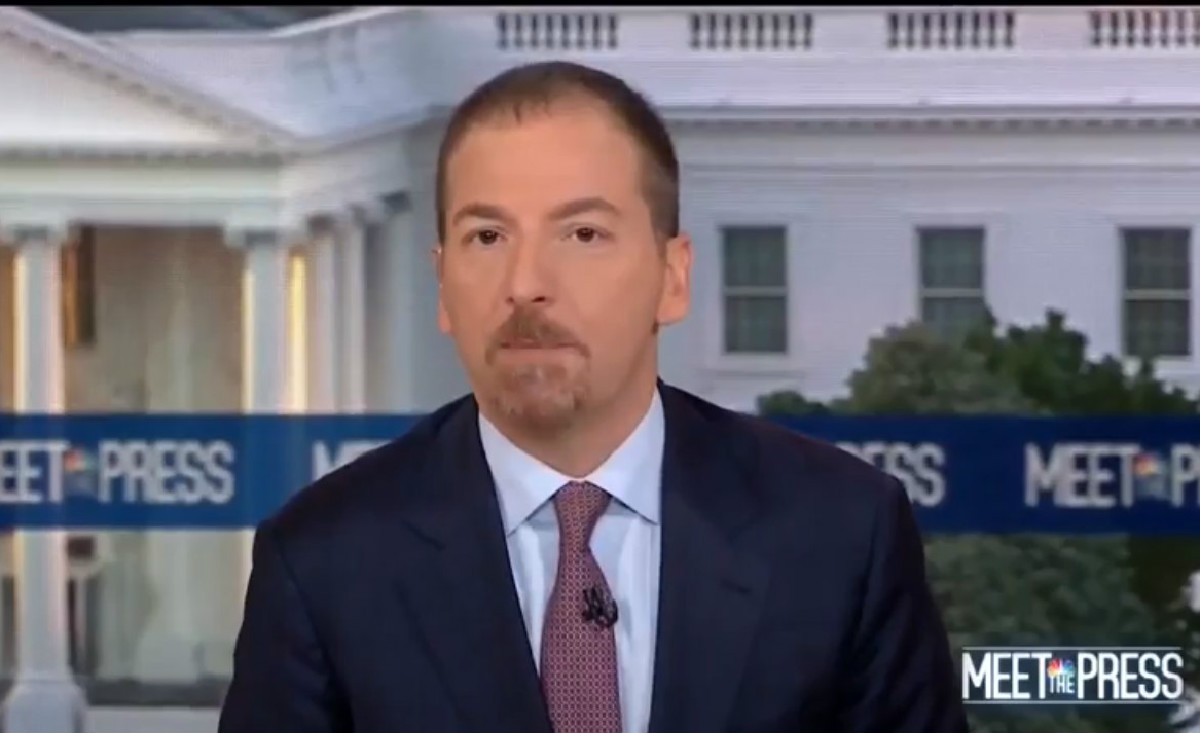
Chuck Todd is lost, though he probably won’t admit it. Hell, he might not even realize it. This month alone, the Meet the Press host has found himself in the middle of controversies that have enraged both liberals and conservatives.
He first courted scorn in December by blaming “gullible” voters for the election of President Donald Trump. These comments, made on an episode of the Recode Decode podcast, did not go unnoticed, as right-wing media flagged them for aggrieved GOP voters. A few days later, on his Sunday show, Todd interviewed incoming Wisconsin Gov. Tony Evers, the victim of a lame duck power grab by the state’s Republican Party. Todd reduced the undemocratic campaign to “end runs around” the election results. He also claimed Democrats had done the same in the past. He even advised Evers to “take the partisan hat off a minute” so that he could recognize the governor’s office in Wisconsin wielded too much power. To no one’s surprise, the segment did not fly with lefty media.
For most media members, this rate of derision would cause shock and unease. For Todd, the criticism likely brought him comfort, a confirmation that his journalism is still in touch with the center.
These alleged missteps provided the backdrop for Todd’s recent appearance on “The Jamie Weinstein Show,” in which he reflected on the state of the media in the Trump era. The interview demonstrated why the mainstream press is failing the American people.
“The Jamie Weinstein Show” is a product of National Review Online, but few would accuse its eponymous host of being an ardent Trump fan or even a Republican yes-man. Nevertheless, Weinstein produces his podcast through a conservative lens and he began this episode like he does all others: He asked Todd if anything from the Trump administration had surprised him. Predictably, Todd framed his answer around the views of D.C. political culture.
“I think the most difficult thing we in official Washington have had with the Trump administration is that he is a disruptor, he has changed the rules, and we’re still playing by old rules,” he said.
Todd, 46, is entrenched in Beltway way of life. The George Washington University graduate started out at the bland National Journal before he became a TV personality and political director for NBC News. In 2014, he became the moderator of Meet the Press and has interviewed half of Congress since then. Outside of political journalism, he is known for his gambling. He has a regular segment on the podcast, “The Tony Kornheiser Show,” where he discusses sports with D.C. resident Tony Kornheiser and CNN commentator Chris Cillizza. Despite being a Washington insider through and through, it took a Trump presidency for Todd to see that D.C. was broken and that the rules had changed.
Liberals have long complained about the “both-sidesism” game Todd and the Washington press has played over the years. An interview this summer with Sen. Dick Durbin crystallized this very critique. Todd accused Durbin and Democrats of “hypocrisy” for threatening to delay judicial nominations until after the November elections this year. Todd played a clip of 2016 Durbin who was irate that the Republican Senate majority was leaving a Supreme Court seat vacant. Ignoring the unprecedented level of obstruction former President Barack Obama faced, Todd, with a straight face, asked Durbin to explain the change of heart.
Political scientists Norman Ornstein and Thomas Mann, the authors of the book, “It’s Even Worse Than It Looks,” had already answered that question in 2012. The scholars summarized the thesis of the book as such:
“The GOP has become an insurgent outlier in American politics. It is ideologically extreme; scornful of compromise; unmoved by conventional understanding of facts, evidence and science; and dismissive of the legitimacy of its political opposition. When one party moves this far from the mainstream, it makes it nearly impossible for the political system to deal constructively within the country’s challenges.”
Todd, a political junkie, has surely read the book. He clearly didn’t buy the premise. Five years later, Todd attributes Trump for disrupting the system, not the power-hungry politicians that came before him. Journalism professor Jay Rosen explains how this happened, how a smart political observer failed to identify an already broken system.
“Asymmetry fries the circuits of the mainstream press,” Rosen wrote in his PressThink blog. “Political journalism isn’t wired for this. It’s wired to safely reproduce the image of two comparable parties with different philosophies.”
Todd has clung to the notion that both major political parties have comparable vices and virtues. It’s why he feigned ignorance when he asked Durbin about judicial appointments. It’s why he described the Wisconsin gubernatorial dispute as a typical transfer of power rather than a scheme just short of a coup.
In Monday’s interview with Weinstein, Todd unintentionally revealed his flaw as a journalist. Todd suggested that NBC News and other mainstream media outlets have focused its attention on Trump scandals because of business incentives. People want Trump drama. Yet he argues that some stories, such as Michael Cohen’s sentencing, are not worthy of prolonged coverage.
“Take the Michael Cohen sentencing. That’s a headline. Is that an hour, or is that a minute? But the viewer wants more. O.K. And if you don’t give it to them, they are going to go somewhere else.”
Todd fears that these business incentives are driving him away from stories that matter.
“I worry we are only doing what you want to read about Trump drama, versus what I think is the biggest story of the day, which is what’s happening in the U.K. [regarding Brexit].”
The president’s personal lawyer was sentenced to jail for three years and Todd thinks public interest in the story is overblown. If Obama had a felonious lawyer who received a three-year jail sentence, the story would have hijacked the news cycle for weeks. Todd thinks a half-hour on Cohen is too much, unworthy of his attention. It’s this dichotomy that exposes Todd’s yearning for a balanced politics. Why should he have to cover a corrupt Republican president insulated by a craven, Republican-controlled Congress when he could be talking about Brexit, a political movement occurring 3,000 miles away?
Later in the show, Weinstein asked Todd what was his most interesting story right now that had gotten little spotlight. The Washington reporter gave the most guarded, uncontroversial answer he could think of: Chinese IP practices.
In reality, the least talked about story in the Trump era is how the mainstream press still struggles to report on an asymmetric political system.
Chuck Todd continues to prove that.

